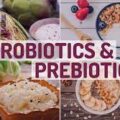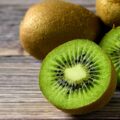oToday we are going to learn more about Folic acid benefits and its deficiency. How it is generated? Why it is beneficial to a human diet and what are its disorders. Let’s learn more in detail.
Folic acid is a b-complex vitamin. It is also known as B6 vitamin.
Requirement of folic acid starts from the time when the egg fertilizes in the human body. There are many reasons for the requirement of folic acid in the diet.
The most important function of folic acid is cellular growth and regeneration. As cellular growth and regeneration is an on growing process for life time its requirement is by all the age group.
Supplementing folic acid to a growing fetus in the womb is the most important concern when a woman is pregnant.
Deficiency of folic acid in the mother’s diet can cause hazardous effect on the growing fetus. Neural tube defects are seen in the new born babies whose mother’s diet is low in folic acid.

So the most required vitamin during pregnancy is folic acid especially during the first few weeks of pregnancy.
It helps in prevention of birth defects in the new born babies. Lack of folic acid in the diet may lead to mental conditions such as depression, Alzheimer’s disease and several types of cancer. Fortunately, there are many foods that are naturally rich sources of folic acid.
So meeting up daily requirement is not a task if you consume a healthy diet throughout the day with appropriate fruits, vegetables and cereals in the diet.
BENEFITS OF FOLIC ACID:
- Folic acid is beneficial to fight against growing cancer especially colon cancer. It is also know to help aid the development of healthy cells and protect you from cell damage that may lead to future cancers.
- Folic acid helps those suffering from major depression and schizophrenia.
- Folic acid also helps in production of red blood cells and also helps blood vessels to relax thereby helps to control blood pressure in the body. Indirectly folic acid prevents from strokes and heart diseases.
- It increases fertility rate in males and females both.
How can Folic acid deficiency be identified?
Folate-deficiency anemia and iron-deficiency anemia can have similar symptoms of fatigue and weakness, digestive disorders such as diarrhea, loss of appetite, weight loss, sore tongue, headaches, heart palpitations, irritability, forgetfulness or other behavioral disorders. These are common symptoms which can also be because of some other deficiency. You can consult your physician or dietician to confirm the deficiency.
Folic acid deficiency may cause:
- Diarrhea
- Gray hair
- Mouth ulcers
- Peptic ulcers
- Poor growth
- Swollen tongue (Glossitis)

Vitamin B9 – Folate
Foods to increase folic acid in the diet.
- a large orange (contains 54mcg of folate)
- a large hard-boiled egg (22mcg)
- a medium papaya (115mcg)
- 1/2 cup of chickpeas or chhole (140mcg)
- 1/2 cup of cooked spinach (130mcg)
- 3/4 cup of cooked white rice (60mcg)
- 1 cup of tomato juice (50mcg)
- 1/2 cup of lentils, cooked (175mcg)
- 1 cup of noodles, cooked (160mcg)
- four tablespoons of black-eyed beans (220mcg)
- 1/2 cup of kidney beans or rajma (115mcg)
- seven tablespoons of bran flakes (113mcg)
- 25g/1oz of wheat germ (100mcg)
- two spears of steamed broccoli (61mcg)
- a large jacket potato (39mcg)
Apart from the above list, all green leafy vegetables, seeds and nuts, fruits (different colors), legumes and grains also help to increase folic acid levels and thereby prevent folic acid anemia.
Absorption of folic acid increases when it is accompanied by vitamin C. so whenever possible take it with freshly squeezed lemon. Absorption also depends on the present levels of the body folic acid. If there is severe deficiency absorption will b more and faster.
It is recommended to take folic acid supplements if there is severe deficiency or you are pregnant woman because folic acid helps during pregnancy. During this phase requirements are really high so concentrated source is required. So the amount of vitamins present can vary. So taking a supplement which ensures particular amount of folic acid is more reliable and a sensible decision.
Combination of folic acid and iron works wonder.
The Recommended Dietary Allowance (RDA) for vitamins reflects how much of each vitamin most people should get each day.
The Food and Nutrition Board of the Institute of Medicine Recommended Intakes for Individuals – Daily Reference Intakes (DRIs) for folate:
Infants
- 0 – 6 months: 65 mcg/day
- 7 – 12 months: 80 mcg/day
Children
- 1 – 3 years: 150 mcg/day
- 4 – 8 years: 200 mcg/day
- 9 – 13 years: 300 mcg/day
Adolescents and Adults
- Males age 14 and older: 400 mcg/day
- Females age 14 – 50: 400 mcg/day plus 400 mcg/day from supplements or fortified foods
- Females age 50 and over: 400 mcg/day
RD Neha Kava
Latest posts by RD Neha Kava (see all)
- 3 Supplements To Try That Will Improve Your Health - March 15, 2025
- 3 Tips to Adding Supplements to Your Diet - March 14, 2025
- Beginners Running Tips – How to start getting in shape with the most efficient exercise out there - March 13, 2025



